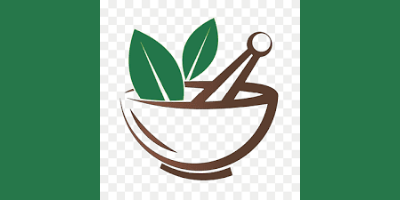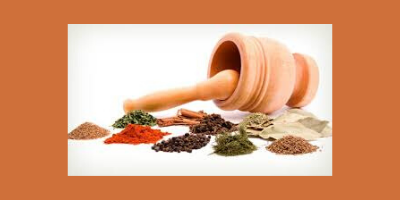CLOVES
Clove’s anti-inflammatory, analgesic and antimicrobial properties provide benefit for cough and minor sore throats; just chew on a roasted clove bud for quick effect.
Drinking Clove tea can help thin mucus, making it easier to cough up phlegm in bronchitis.
Mix equal parts Cloves and ajmo seeds, gently roast them in a pan till browned. Grind this to a powder. Consume ¼ teaspoon mixed in a bit of food, drink or honey.
Spiced Herb Tea- Boil 2 cloves buds, 12-15 fresh basil leaves and 10 black peppercorns in sufficient water for 15 minutes. Add 2 teaspoons honey and milk to taste, and then drink
BLACK PEPPER
Thins mucus and relieves blocked phlegm in cough, sinusitis, asthma and colds.
Tea made with black pepper can be used as nasal drops for these conditions.
Peppered honey is an especially sweet way to take this spicy medicine and used to break up mucus congestion. Fresh fine ground black pepper can be mixed with a spoonful of honey. It tastes very spicy as expected, but goes down sweet.
Throat- a gargle with black pepper for a sore throat and hoarseness, potentially combined with garlic.
Colds and Flu Relief-Spiced Milk can be used as a head cold helper-To get relief from a head cold, gently boil freshly ground pepper and turmeric in milk. Sip one cup once a day for three days.
TURMERIC
Turmeric is powerful anti-viral and antibacterial agent. It is also an anti-inflammatory and a carminative (prevents the formation of gas.)
When we have a cold our mucous linings swell. The Turmeric can help to reduce the inflammation and also decrease the mucous.
With the flu, Turmeric helps to combat the virus through its anti-viral properties.
You can use Turmeric Milk as a preventive or once you feel a cold or the flu coming on.
As a preventative, drink a cup a day. To combat an on-coming cold or flu; before bed take an Epsom salt bath and then drink a cup of Turmeric Milk when you get out of the tub, then get under the covers and go to bed. Drink another cup in the morning.
THYME
Thyme- an effective remedy for a number of ailments of the respiratory, digestive, and other systems. Thyme has strong natural expectorant constituents that can help loosen and expel mucus. Thyme also soothes dry spastic coughs and relaxes the bronchial musculature.
Thyme Tea is said to be effective in treating colds/flus, bronchitis, allergies, asthma and even the childhood disease whooping cough. Add a bunch of thyme to boiling water. (~1/2+ cup chopped fresh, less if dried). Cover and infuse for 10-30 minutes. Strain, and sweeten with honey if desired. Enjoy thyme tea by the cupful one to three times a day. Double the herb when preparing a strong tea for use as a gargle or bath additive. Add cinnamon and cloves for enhanced flavor and effectiveness. The prepared tea will store for about two days in the refrigerator.
Thyme Honey can be taken in place of cough syrup for both its antibacterial and cough soothing properties and can also help laryngitis and tonsillitis. In a jar add a half bunch of thyme chopped large to a cup of honey. Screw on lid and place in refrigerator for 3-7 days. Return to room temperature, warm in a pan of hot water, then strain out the plant material with cheesecloth or fine screen. Take 1 teaspoon to 1 tablespoon as needed one to three times daily. A steam inhalation of fresh or even dried or essential oil of thyme can effectively open congested airways and sinuses.
FENNEL – SAUMF
Thought to be an effective herbal remedy for respiratory congestion and chronic cough as it is bronchodilator (opens airways) and calms spastic airways.
To make Fennel Honey, Crush fennel seeds in a clean coffee grinder. Soak in a jar for a week in a cup of honey. Warm the honey in a bowl of hot water, then strain out the seeds with cheesecloth or screen. Take a spoonful of fennel as needed for cough or congestion, just like cough syrup.
Gargling with a strong fennel tea can be useful for soothing sore throats and hoarseness.
Warm fennel tea can be soaked into a cloth and used as a compress for red itchy eyes.
Pregnant women should avoid very large amounts of fennel as it can stimulate uterus.
GINGER
Ginger had got some good healing properties which can help with bacterial infections too. However it helps best when taken before the onset of the infection and will help during the infection in restricting it.
•If you have been coughing profusely and can’t stop, take a piece of freshly cut ginger and dip in some salt and chew on it taking in the juice. This will help with the cough.
•Another way is to cut 2inches of ginger and cut it and boil it in 1glass of water to concentrate it. Once it halves in quantity, add some lemon juice and honey and keep drinking it 3-4 times during the day.
•When you have stomach upset. This is a ginger is a good help with the digestion and flatulence.
•
GINGER TEA
1)Ginger
2)Lemon juice
3)Honey
Fenugreek Ginger Tea:
Add 1 tbsp. of Fenugreek / methi seeds, 5-7 black peppercorns, and 1 tsp. of fresh minced ginger to 16 ounces of water.
Boil the mixture until it reduces by half. Then remove from heat, and keep aside to cool. Drink the tea up to four times a day to relieve symptoms
Onion:
Peel a white onion, crush it.
Add the crushed onion to 8 ounces of water and also add 1 tsp. lemon juice, 1 tsp honey and bring the mixture to a boil.
Let the mixture cool, and drink. Onion is rich in flavanoids and thus has antimicrobial properties against a wide spectrum of microorganisms. Onion is a popular home remedy for cough and cold used in most Indian households.





0 Comments